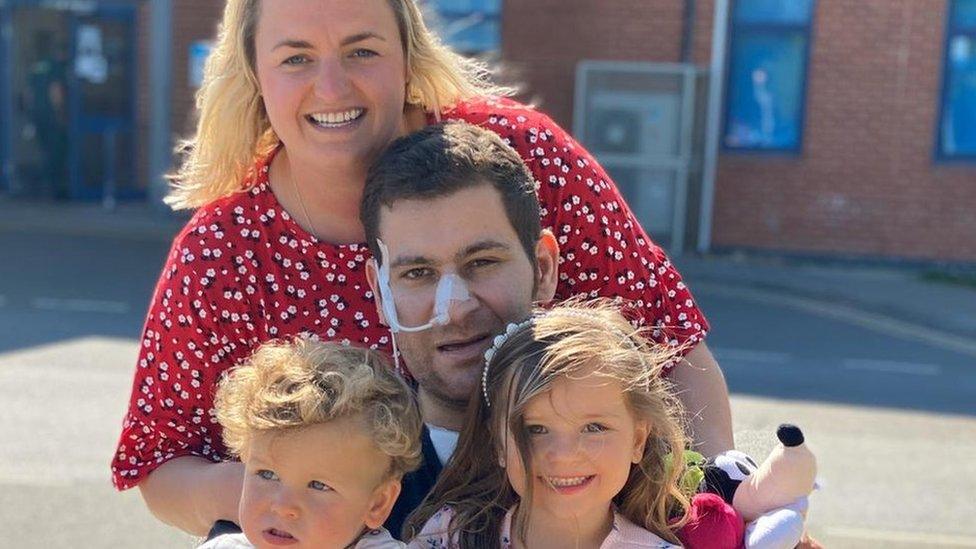Coronavirus: Doctors study brain of 'miraculous' young patient
- Published
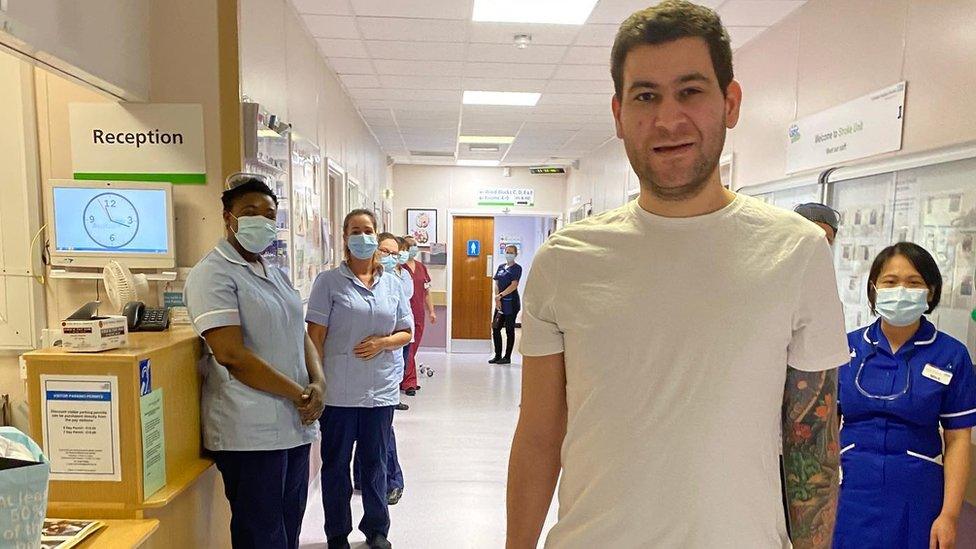
Omar Taylor spent six weeks in hospital with coronavirus
Doctors have studied the brain of a father-of-two who became the youngest reported patient in the world to have a stroke due to coronavirus.
Omar Taylor, 31, spent six weeks at Colchester General Hospital with coronavirus, pneumonia, sepsis, respiratory failure and a stroke.
His recovery amazed doctors and his family, who described it as a miracle when he walked out of the hospital.
Mr Taylor said he hoped his case could benefit future treatment of patients.
Doctors said it had helped them understand how the virus can attack the brain, inducing a "cytokine storm".
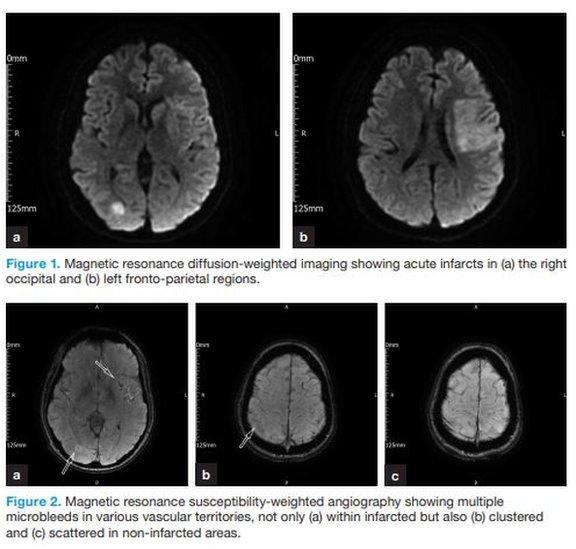
Doctors found multiple microbleeds suggesting a a Covid-19-induced "cytokine storm"
Stroke consultant Dr Joseph Ngeh cared for Mr Taylor and co-authored the report for the British Journal of Hospital Medicine.
He said he hoped it would raise awareness about the potential risk of Covid-19 patients having a stroke.
"Omar is the youngest patient we have found in medical literature to have had a stroke caused by the virus," he said.
"His case is very intriguing and I will remember it for the rest of my life.
"We are learning more about the virus every day and we now know it can cause an inflammatory response which can lead to a stroke, even for very young patients, like Omar."
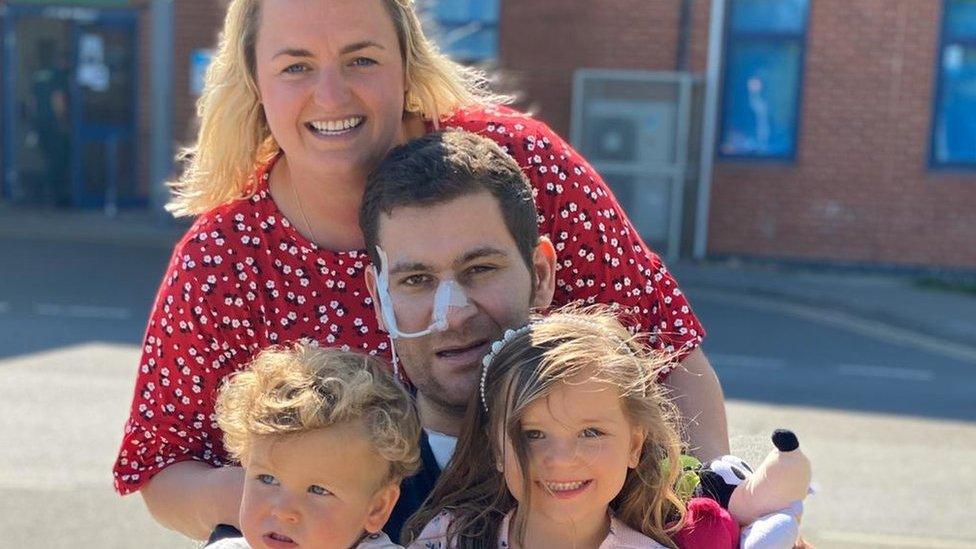
Omar Taylor is back home with his two children and wife Kaitlyn, who has described his recovery as a miracle
Mr Taylor's brain imaging showed unusual features in such a young patient who had no previous stroke risk factors, he added, with "multiple microbleeds" suggesting a Covid-19-induced "cytokine storm".
"He had the most severe stroke you can have and his brain was being attacked on both sides," Dr Ngeh said. "The vast majority of patients would need 24-hour care after this sort of stroke."
Mr Taylor spent 20 days on a ventilator in intensive care before he was transferred to the stroke unit and eventually discharged.
He said: "I am very happy that the team of doctors were so interested in my case and I hope it can benefit doctors in the future when treating patients who are in a similar critical condition to me and save lives like they did mine."
A fundraising page created by a friend has raised nearly £19,000, which the family is using to fund daily therapy sessions at home in Rowhedge, near Colchester.
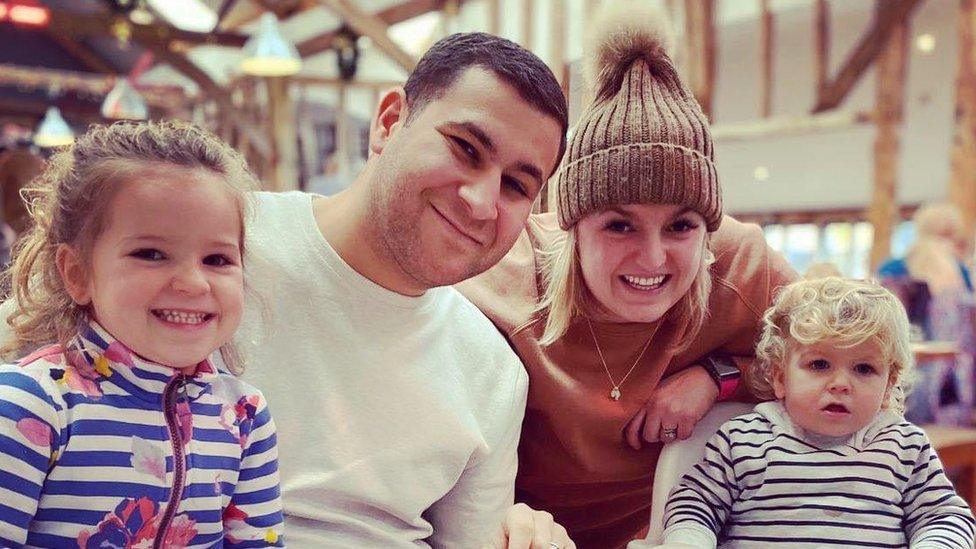
Kaitlyn Taylor said her husband Omar is an amazing father to their children Vivienne, aged four, and Harrison who is nearly two
Mr Taylor's wife Kaitlyn, who is training to be a nurse at the hospital, said she was incredibly proud of him.
He has been left with a weak right hand and limited speech but has really improved and is working so hard, she said.
He is hoping to return to his job as a regional director of Care UK soon.
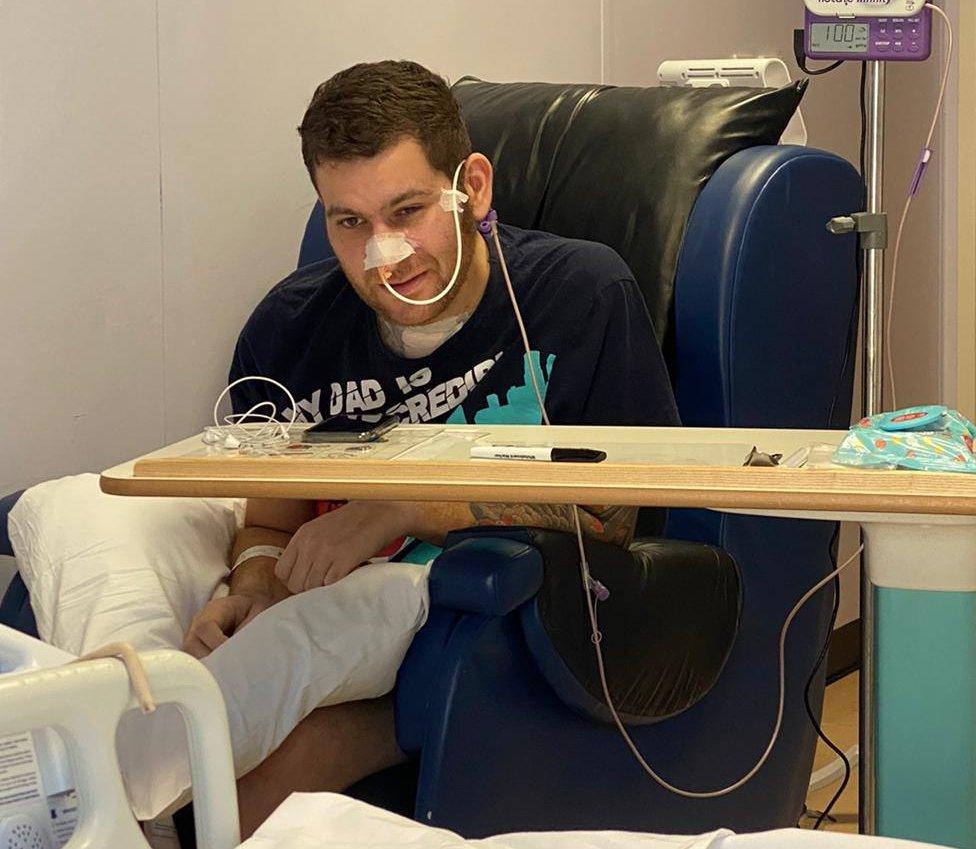
Kaitlyn Taylor took this photo of her husband Omar through a window at the hospital when she was not allowed to see him in person

Find BBC News: East of England on Facebook, external, Instagram, external and Twitter, external. If you have a story suggestion email eastofenglandnews@bbc.co.uk, external
Related topics
- Published19 May 2020
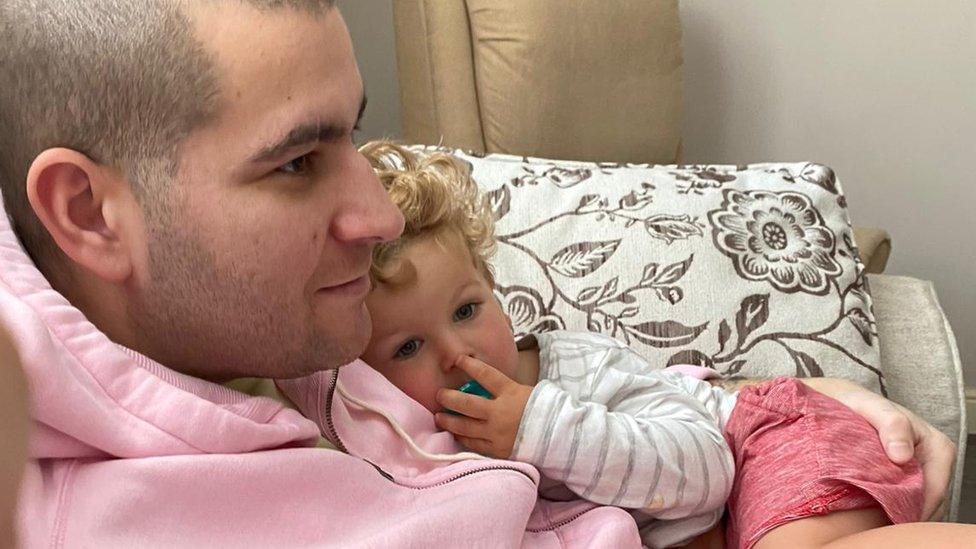
- Published10 May 2020

- Published6 May 2020
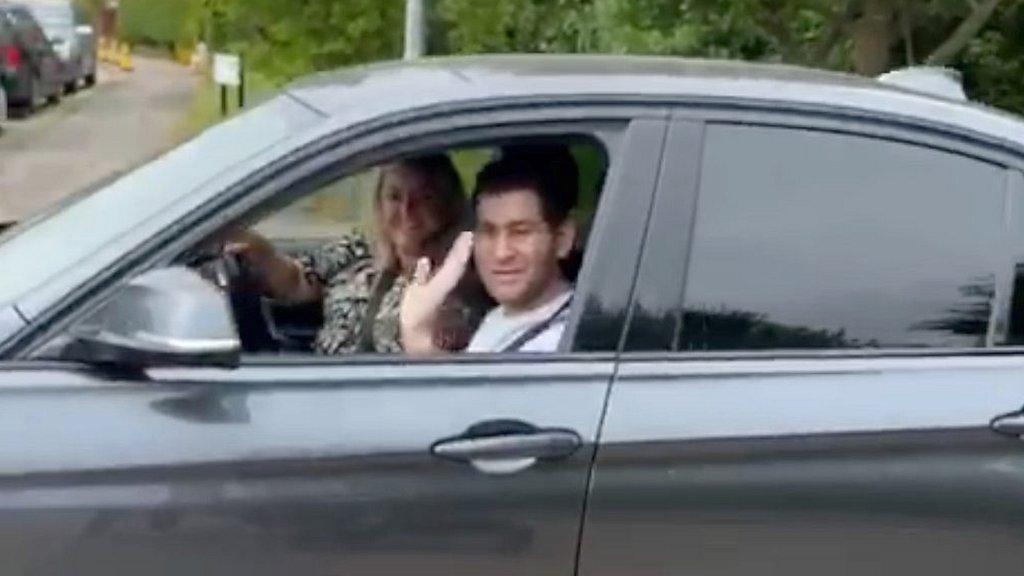
- Published1 May 2020
